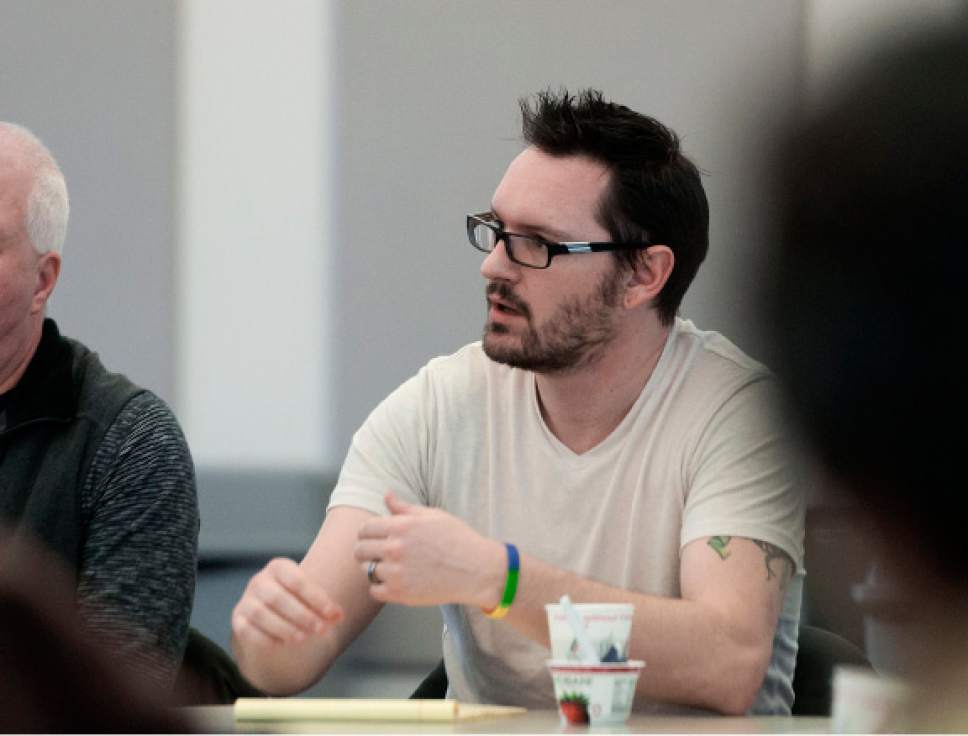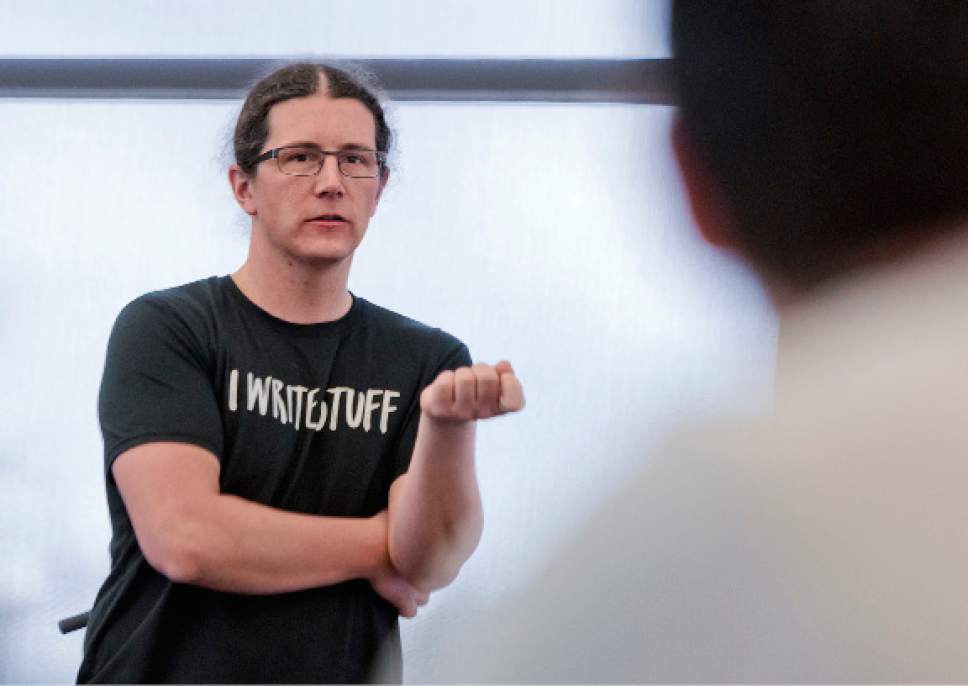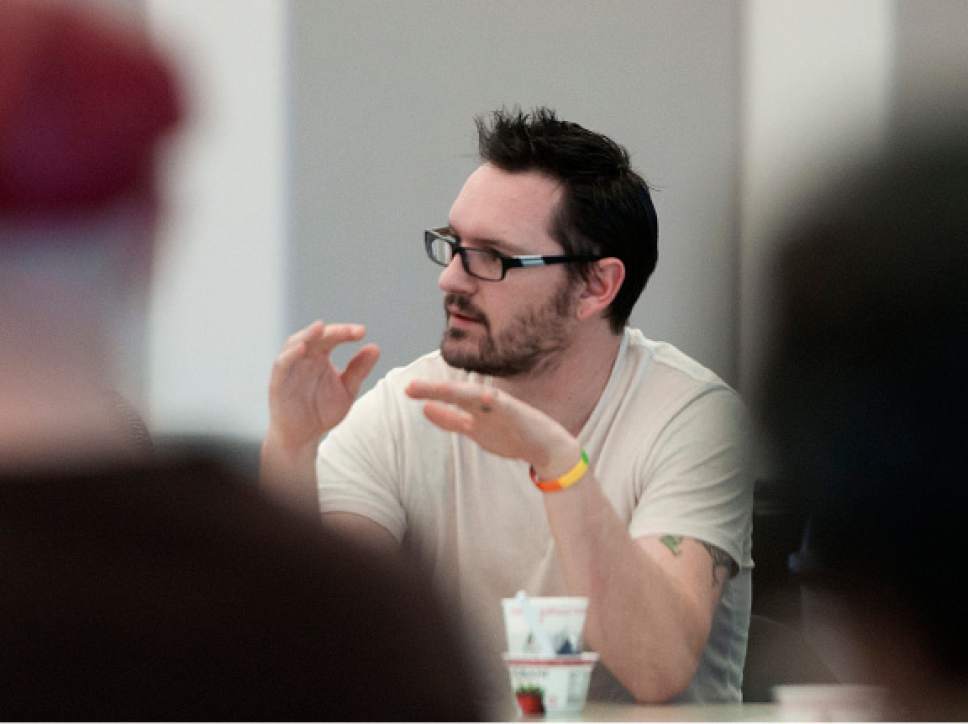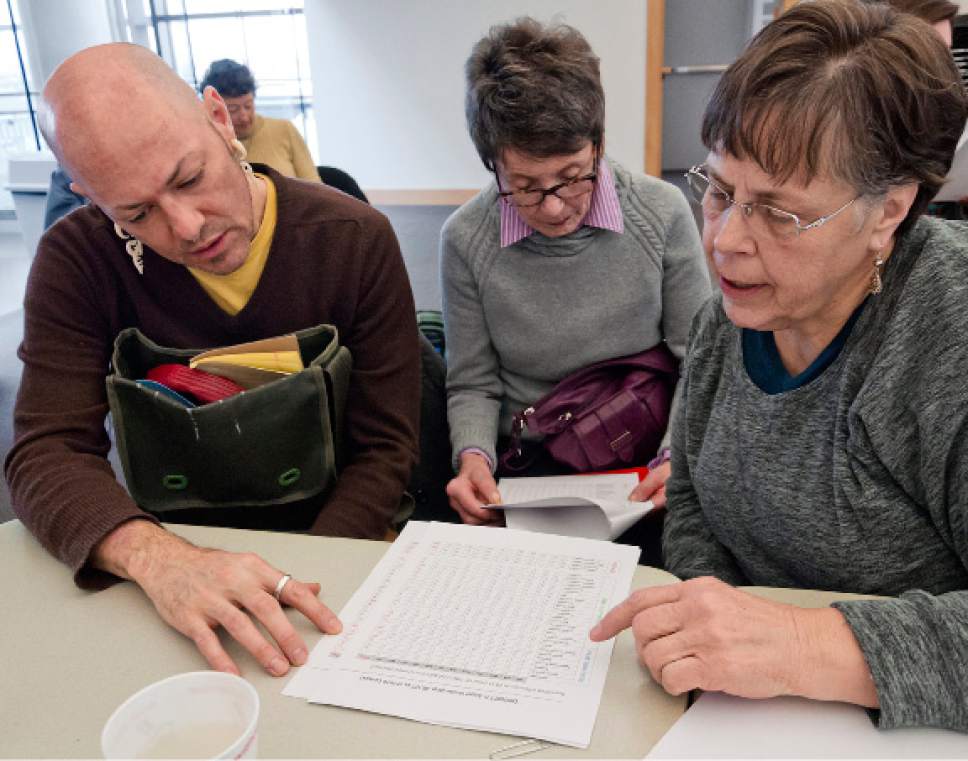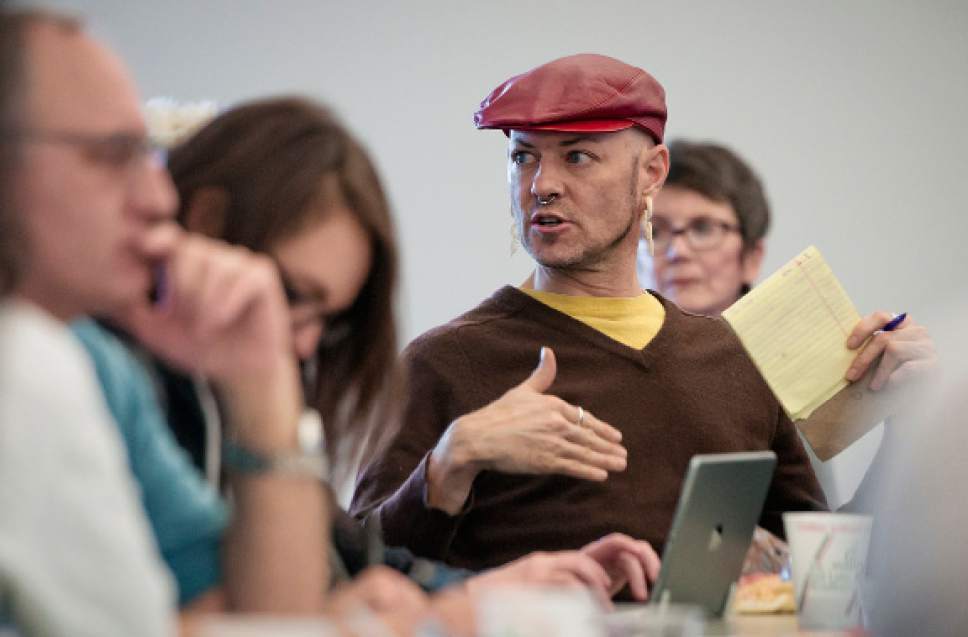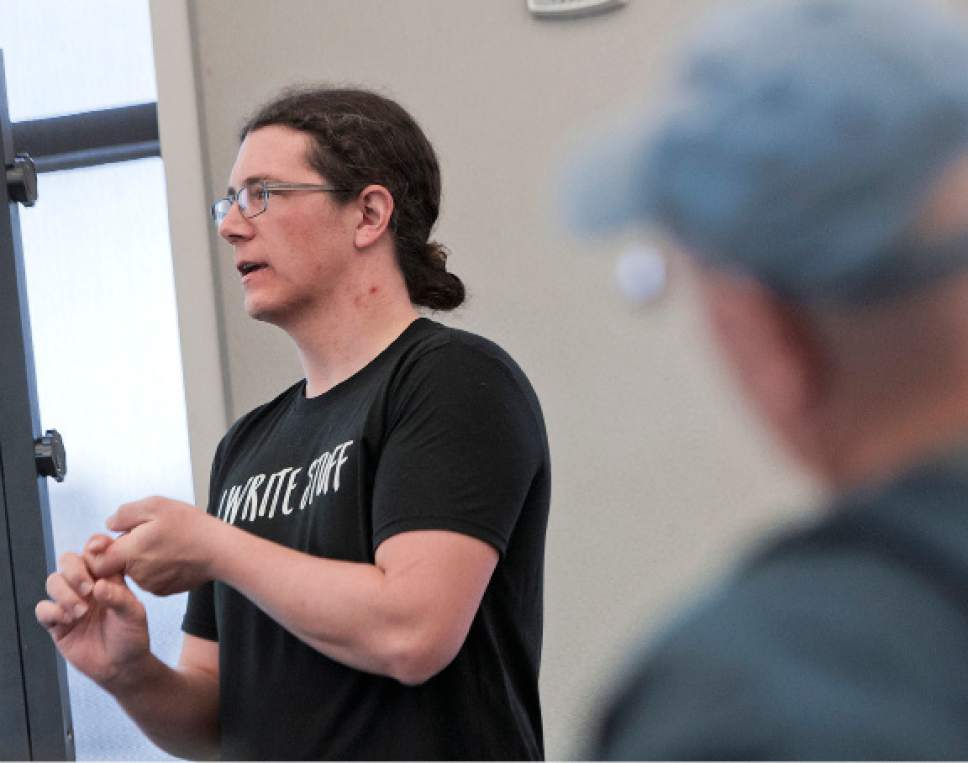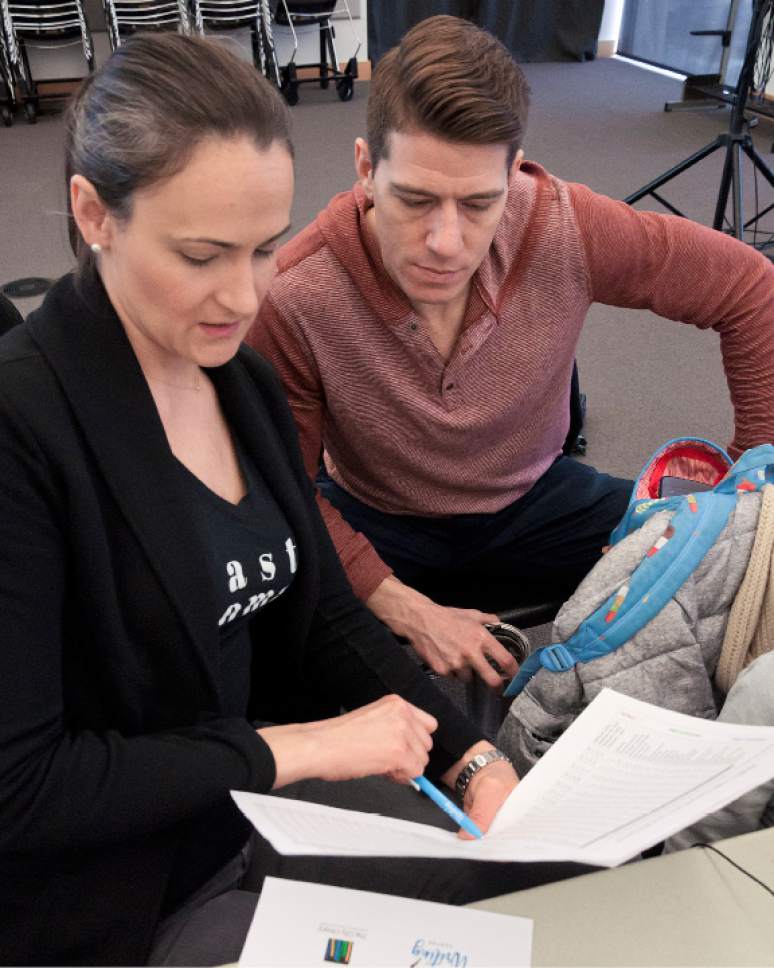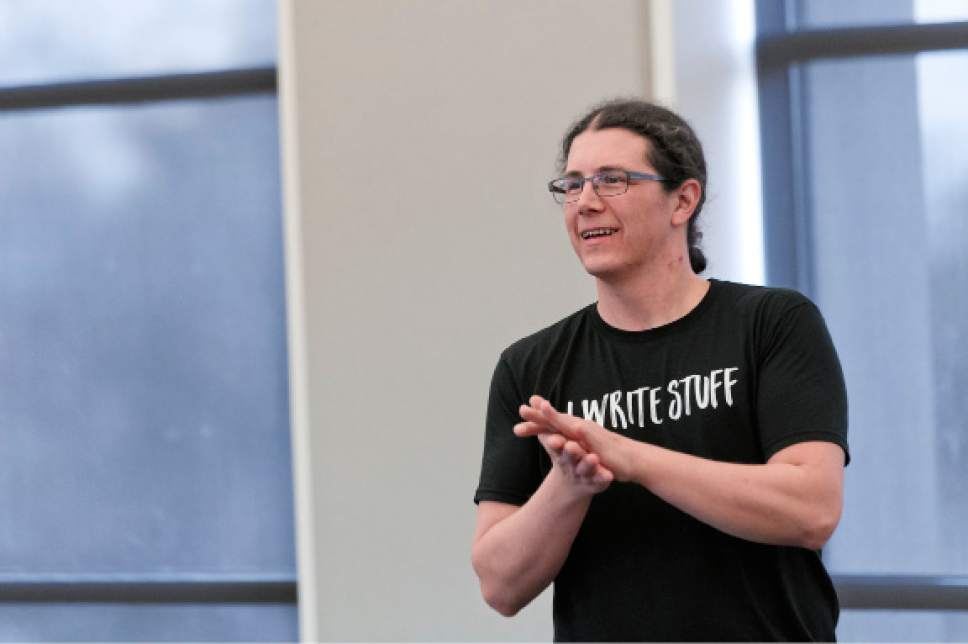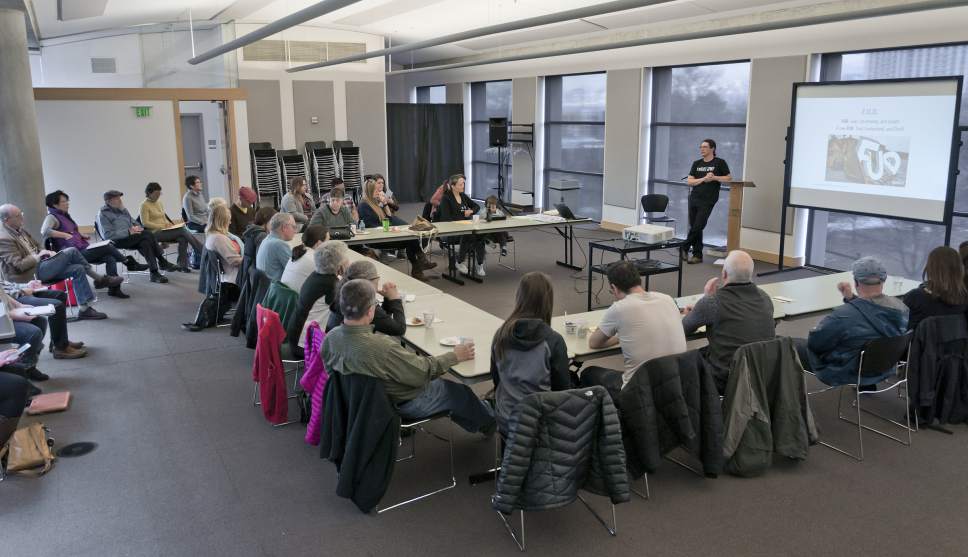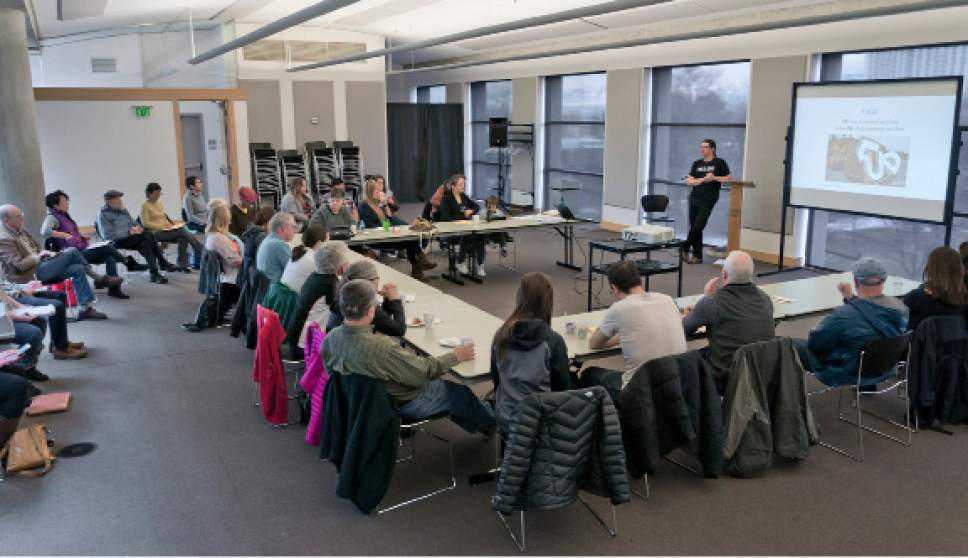This is an archived article that was published on sltrib.com in 2017, and information in the article may be outdated. It is provided only for personal research purposes and may not be reprinted.
The wave of to-do lists after Nov. 8 came hard and fast.
Shell-shocked progressives urged their friends and colleagues to action: Call your member of Congress about the Accountability Act! Sign the petition asking electors to vote their consciences! Register for online tickets to Trump's Ohio victory rallies that you'll never use!
The flurry has hardly abated since the inauguration. Last weekend, a call went out to phone Mar-a-Lago when the president was in residence to express fury about the travel ban. It's all part of the Sturm und Drang of American politics these days.
But there is another way, slow and steady, old school even: written words carefully crafted in letters to the editor and emails to congressional representatives.
Salt Lake Community College's Community Writing Center has been teaching Utahns how to persuade with prose for a decade in sessions at the center on the Salt Lake City Main Library's plaza. But, as in many things, this year is different. Center and library organizers have expanded their Writing for Change workshops to reflect reality on the ground.
A three-week session this month started last Saturday with a workshop in statistics. It continues this weekend — Saturday, from 10 a.m. to noon in the main library's fourth-floor conference room — with a session focused on Twitter and Facebook. A final session goes back to the tried-and-true method of written letters.
If attendance at last weekend's workshop is any indication, the public is hungry for help expressing feelings. Normally, the sessions draw between one and 10 attendees. Last week, 32 people turned out.
"We do this every year to help people engage with their legislators, but this year is even more so. People are really engaged with politics because of the new president," said Tommy Hamby, adult service coordinator at the City Library. "My feed is full of this stuff — ways to be engaged."
Center instructors check basics such as grammar and structure, of course, and provide one-on-one coaching for those who want additional help. But the February workshops also are geared to addressing changes in modern communication forms — and norms. With a president who tweets policy nearly daily from his personal account and the proliferation of Facebook news feeds and ad hoc "news" blogs, says center director Justice Morath, instructors want to help attendees filter and interpret the things they read.
Saturday's statistics session, for example, highlighted the pitfalls of playing a numbers game. Look for reputable sources, the instructors advised — newspapers, government think tanks, scholarly journals. Don't, Morath says, pull a number out of thin air.
Even journalists didn't get a pass in his presentation: "Dear News Media, if two poll numbers differ by less than the margin of error, it's not a news story," a slide warned.
Attendees were asked to distill crime numbers from the Salt Lake Police Department and craft an accessible and accurate message. Push through fear, uncertainty and doubt, Morath said, to find, understand and distill.
"We want to provide critical thinking tools you can apply when you hear a number," said Morath, a SLCC psychology professor. "You have to ask: Where did they get that from? What does it mean? How can that number be interpreted differently? And what about my biases? Am I accepting this number without judgment?"
The upcoming session Saturday will dissect social media similarly, including tips for spotting fake news and structuring a social media post. First, check the source, Morath advises. Is there a source? What is it? Is any other media outlet reporting the same thing?
"Most important," he added, "is checking yourself, stopping for a second and thinking about whether or not this is getting you emotionally riled up. Is this a legitimate argument, or is it just trying to rile me up? Go through all of that, then you can click 'share.' "
Some of those who attended Saturday's workshop were already active. Others, like Joshua Cameron, from West Valley City, came to hone their skills for more intensive political involvement. He plans to run for the U.S. Senate in 2018.
More often, Morath said, writing workshop attendees feel disenfranchised and powerless.
"A lot of people don't necessarily think their voice will be heard. There's a feeling of impotence, that it won't actually matter," he said. "But even if it is only a drop in the bucket, it's still a drop. It's an empowering experience for someone to publish a letter to the editor." —
Writing for Change
Two more free workshops are being offered by the City Library and SLCC Community Writing Center as part of the Writing for Change series.
Social Media
Saturday, Feb 11, 10 a.m. to noon • Learn how to best structure your social media posts to engage and persuade in a positive and productive way.
Letter Writing
Saturday, Feb 18, 10 a.m. to noon • Learn techniques of writing for change through letters to editors and public officials. Come with a concern and stay to write a letter with the help of a writing coach.
Where • Salt Lake City Main Library, Level 4 Conference Room
More information • http://www.slcpl.org/events/view/6113/ or 801-524-8200


